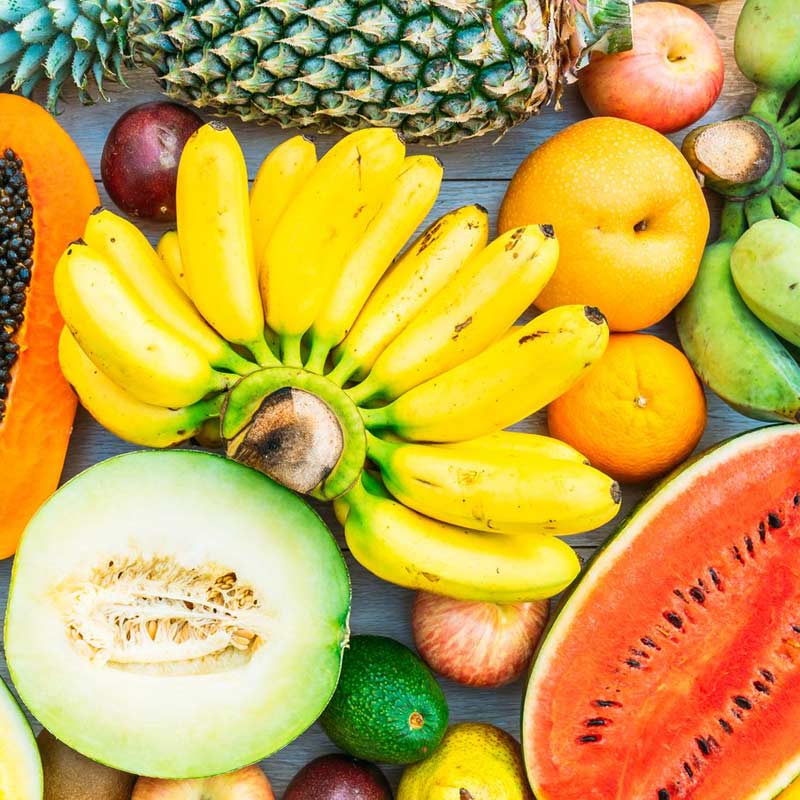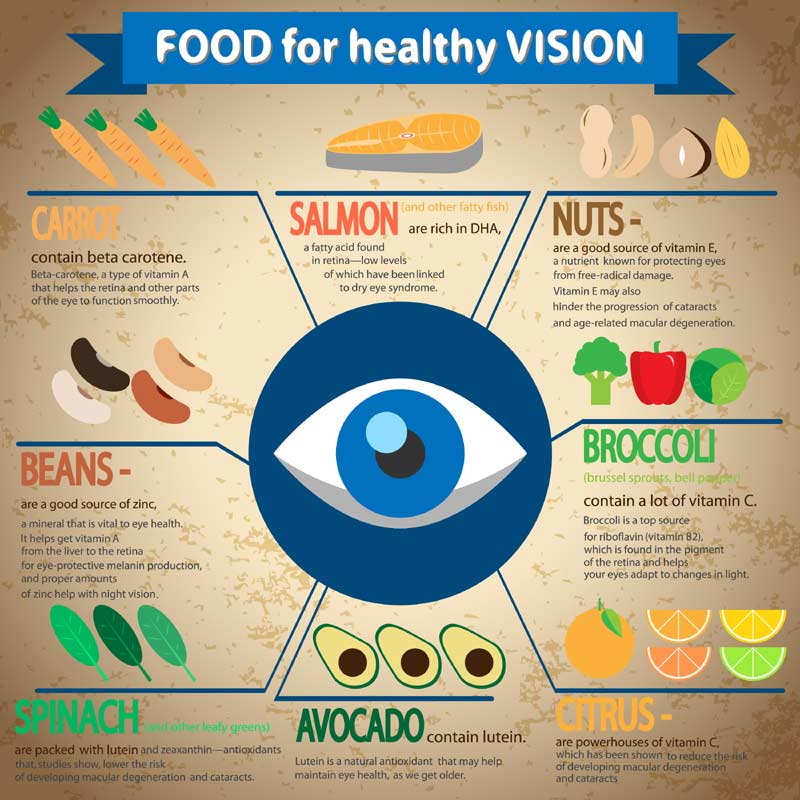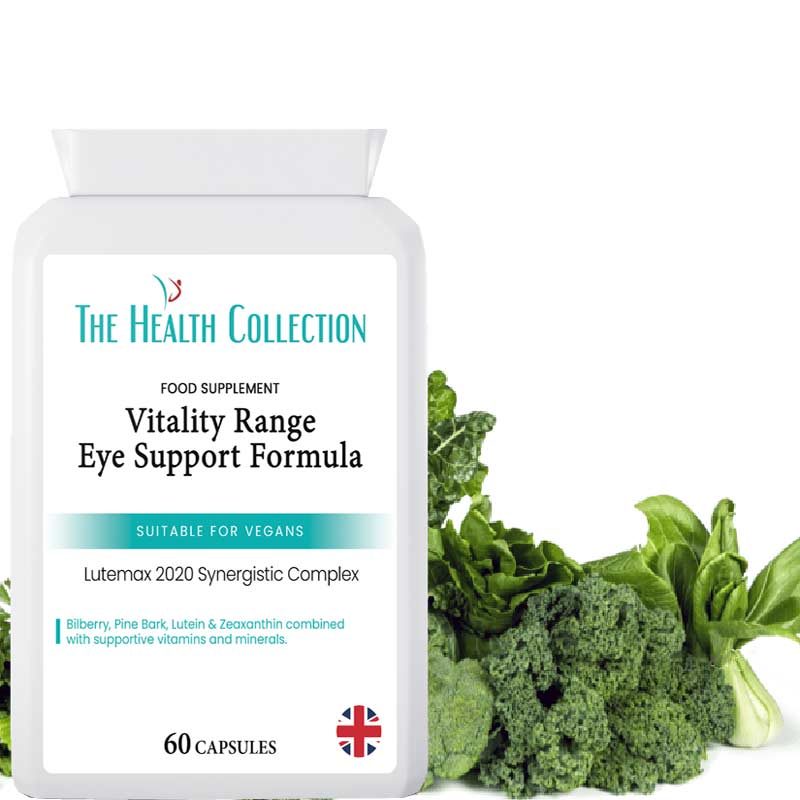Can vitamins really improve eye health. And if so, what are the best vitamins to maintain healthy eyes and vision?
Can Lutein Improve Eye Health?
Lutein was relatively unknown until 2013, when it suddenly burst into the media when the Age Related Eye Diseases Studies (AREDS) was published. From this point, lutein was known as THE eye vitamin, especially in relation to the prevention of age related macular degeneration (a common condition affecting vision in the centre of the eye).

What Is Lutein And How Can It Improve Your Eyes?
Lutein is a carotenoid, that is, one of the hundreds of pigments produced by plants including beta carotene, lycopene and zeaxanthin. Like other carotenoids, lutein is a very powerful antioxidant designed to keep free radicals in check. When allowed to do their thing, free radicals damage your body cells, causing them to malfunction and this can lead to various health problems such as degenerative eye disease, inflammation, dementia and more. Antioxidants are your body’s best friend in keeping free radicals at a minimum.
There are two carotenoids of importance that occur naturally in the eye and these are lutein and zeaxanthin. Lutein occurs in the retina and one of it’s functions is to filter harmful blue light that enters your eye, while both carotenoids help protect your eye from harmful UV light. Excess blue light and harmful UV can lead to eye degeneration. Our Lutein Eye Support Formula Capsules contain all the nutrients you need to support your eye health.
Vitamins & Minerals For Eye Health
We are all aware that vitamins and mineral supplements can contribute greatly to our health. But what vitamins and minerals are bes to help us maintain healthy eyes and vision?
Vitamin C For Healthy Eyes
Vitamin C is a well known antioxidant with a long list of health benefits including helping to protect your cells from free radical damage and that includes the cells of your eyes. Vitamin C also contributes to the production of collagen, a vital protein necessary in maintaining the structure of your cornea and sclera.
There are ongoing projects studying how vitamin C can help reduce the risk of developing cataracts and also help protect against age related macular degeneration.


Vitamin E Benefits For Your Eyes
Another naturally powerful antioxidant is Vitamin E, well known for it’s role in the prevention of oxidation damage caused by free radicals. Vitamin E is thought to help reduce your risk of developing cataracts, age related macular degeneration and help maintain your overall general eye health.
Zinc, The Wonder Mineral For Your Eyes
Zinc is an essential mineral for your eye health, especially your retina, cell membranes and protein structures in your eye. Plentiful zinc is part of the mechanism that allows vitamin A to be transported from your liver to your retina, where is us utilised in the production of melanin, a pigment that helps protect your eyes from harmful UV light.
How Can Copper Benefit Eye Health?
Copper is another important mineral in maintaining the health of your eyes. Copper, in combination with other essential vitamins can help reduce age related macular degeneration.


What Else For Healthy Eyes?
Bilberry: Naturally rich in antioxidants and vitamin c, bilberry extract can help protect against macular degeneration. They may also contribute towards maintaining healthy blood sugar levels and the risk of developing diabetes.
Pine Bark: This extract strengthens blood capillaries and helps prevent leakage of blood and other fluids into the retina, in particular with early stage retinopathy (retina disease). It also contributes to normal healthy blood flow to the retina.
Foods High In Lutein
Lutein is found in most fruits and vegetables so a diet high in these is essential for the maintenance of healthy eyes. Lutein can also be found in other foods such as;
- Olive oil
- Corn
- Parsley
- Pistachio nuts
- Eggs
- Kale
- Spinach
- Romaine lettuce
- Bell peppers
Natural Sources Of Zeaxanthin
Zeaxanthin naturally occurs in a number of food sources including;
- Dark leafy green vegetables
- Goji berries
- Corn
- Egg yolks
- Pistachio nuts
- Green peas
- Romaine lettuce
- Raw brocolli
- Raw carrots
Thank you for reading our article and we hope you enjoyed reading it as much as we enjoyed writing it. If you know someone who might benefit from reading this information, please feel free to share it with them.
As always, we ask that you read our Disclaimer and if you would like to keep up to date on more future articles and news, please subscribe to our newsletter below.


Share in our latest articles and news from the world of natural health




